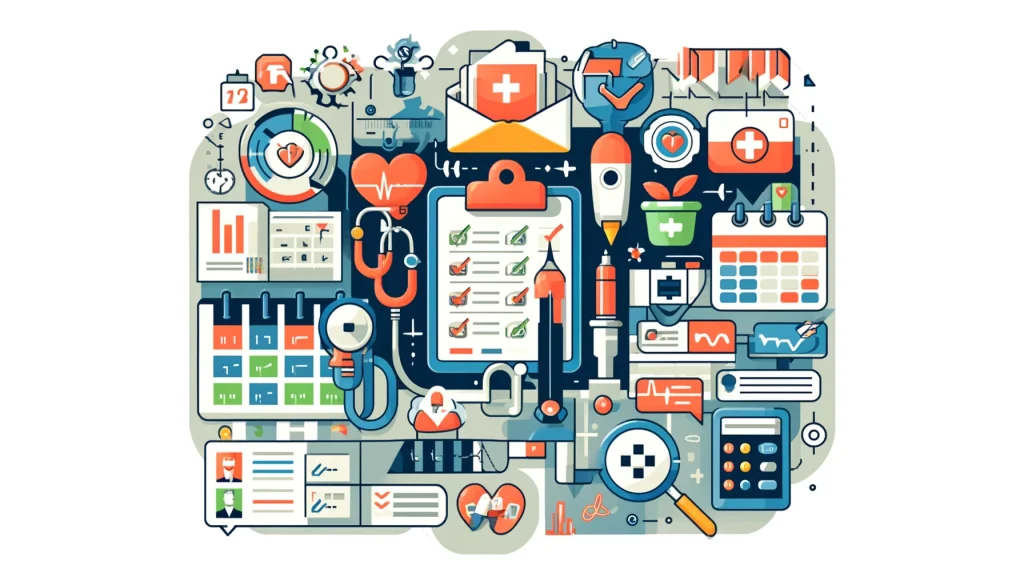Practice Management Systems (PMS) are software platforms designed to streamline the administrative and operational functions of medical practices, clinics, and healthcare facilities. These systems help healthcare providers manage appointments, patient records, billing, claims processing, and other essential tasks to improve practice efficiency and patient care. Here are some key features and benefits of Practice Management Systems:
Appointment Scheduling:
PMS software allows healthcare providers to schedule patient appointments efficiently, manage appointment calendars, and track availability of healthcare professionals and resources such as examination rooms and equipment. It enables patients to book appointments online and receive appointment reminders via email or SMS.
Patient Registration and Check-In:
PMS systems automate the patient registration process, allowing patients to complete registration forms online or at self-service kiosks in the office. Patient demographics, insurance information, medical history, and consent forms are captured electronically, reducing paperwork and administrative overhead.
Electronic Health Records (EHR) Integration:
Many PMS platforms integrate seamlessly with Electronic Health Record (EHR) systems, enabling healthcare providers to access patient medical records, treatment plans, and clinical notes directly from the practice management interface. This integration promotes continuity of care and improves clinical decision-making.
Billing and Claims Management:
PMS software automates billing and claims processing tasks, including patient invoicing, insurance verification, claims submission, and reimbursement tracking. It supports electronic claims submission to insurance payers, reduces claim denials and rejections, and accelerates revenue cycle management.
Insurance Eligibility Verification:
PMS systems provide real-time insurance eligibility verification tools that allow healthcare providers to verify patients’ insurance coverage, copayments, deductibles, and benefit information before providing services. This helps prevent billing errors and surprises for patients regarding their out-of-pocket expenses.
Revenue Cycle Management:
PMS platforms offer comprehensive revenue cycle management (RCM) capabilities to optimize financial performance and cash flow for medical practices. They automate tasks such as charge capture, coding, claims processing, payment posting, and accounts receivable management, reducing billing errors and improving collections.
Reporting and Analytics:
PMS software generates customizable reports and analytics dashboards that provide insights into practice performance, productivity, revenue trends, patient demographics, appointment utilization, and other key metrics. These reports help healthcare providers make informed business decisions and identify areas for improvement.
HIPAA Compliance and Security:
PMS systems adhere to strict security standards and compliance regulations, including the Health Insurance Portability and Accountability Act (HIPAA). They incorporate features such as data encryption, user authentication, audit trails, and role-based access controls to safeguard patient information and ensure privacy and confidentiality.





